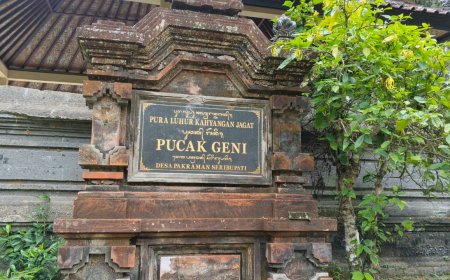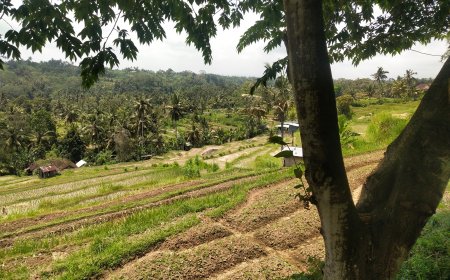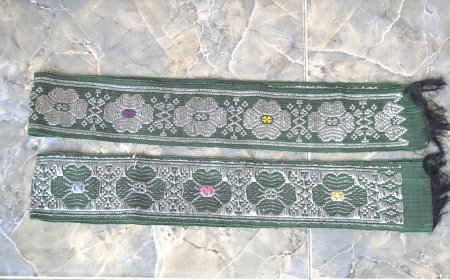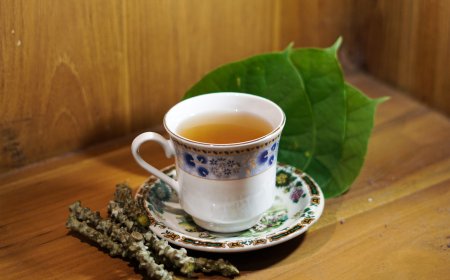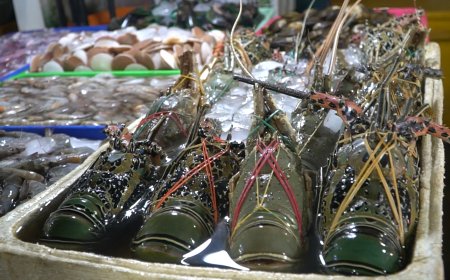Kusamba Salt: A Unique Flavor That Conquers the World
Kusamba Salt from Kusamba Traditional Village, Bali, is a unique product crafted using traditional methods enriched with local wisdom, from seawater collection to evaporation in coconut troughs. This eco-friendly process maintains a harmonious relationship with nature while preserving a cultural heritage passed down through generations. With its high quality and distinctive flavor, Kusamba Salt has become a symbol of sustainability and local pride, successfully reaching international markets and showcasing Bali on the global stage.
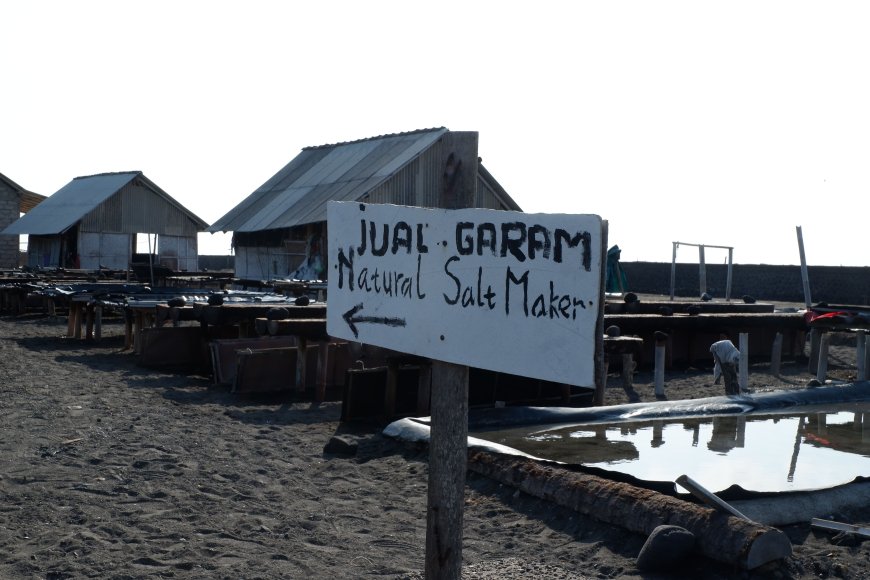
On the shores of Kusamba Traditional Village, Dawan District, Klungkung Regency, Bali, there lies an ancient tradition that continues to be upheld by the local community. This tradition is the making of Kusamba salt, a process that involves traditional techniques and local wisdom. By preserving methods passed down through generations, Kusamba salt has become one of Bali's signature products, renowned even in international markets.
The process of making Kusamba salt begins with seawater collection. The seawater must be of high clarity to ensure the quality of the salt produced. Typically, the seawater is collected in the early morning when the water is calm. This seawater is then poured over the black sand along the coastline. The black sand plays a crucial role as it absorbs the minerals contained in the seawater, making it an effective natural medium for the salt-making process.
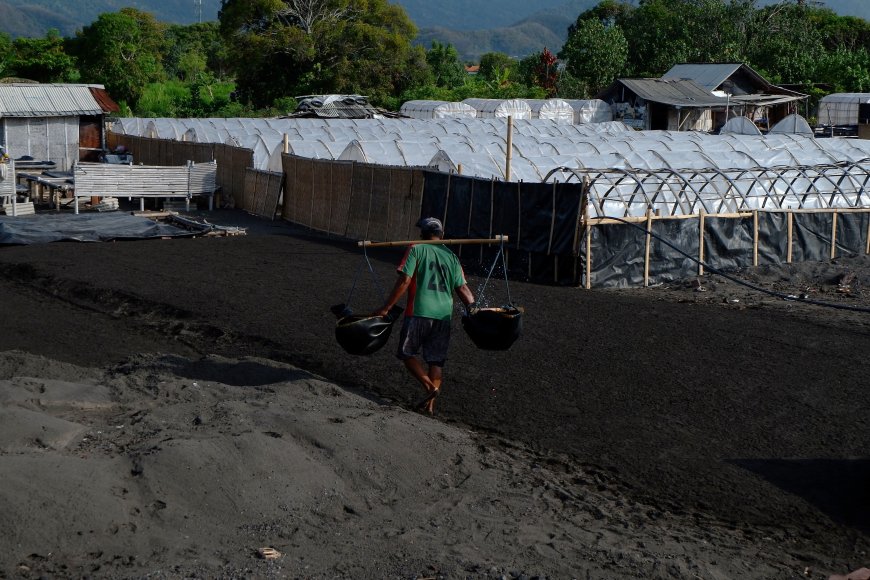
Spraying Black Sand with Seawater (Photo Source: Personal Collection)
The black sand soaked with seawater is then dried under the sunlight until it is completely dry. This drying process takes hours or even days, depending on the intensity of sunlight. This step allows the salt minerals absorbed in the sand to settle on its surface. The dry sand with high mineral content becomes the main ingredient for further processing to produce salt.
Once the black sand is dry, the top layer containing the saline solution is extracted through filtering. This saline liquid is carefully collected and becomes the primary material for the next stage. The salt solution, rich in mineral concentration, serves as the base for forming salt crystals. This filtering stage separates the salt solution from the residual sand, yielding a pure liquid ready for evaporation.
The purified salt solution is then poured into palungan, traditional wooden troughs made from coconut tree trunks. These troughs serve as mediums for natural evaporation. The liquid inside the troughs is dried again under the sunlight until all the water evaporates, leaving behind pure and natural salt crystals. This process is meticulously carried out to ensure a high-quality final product.
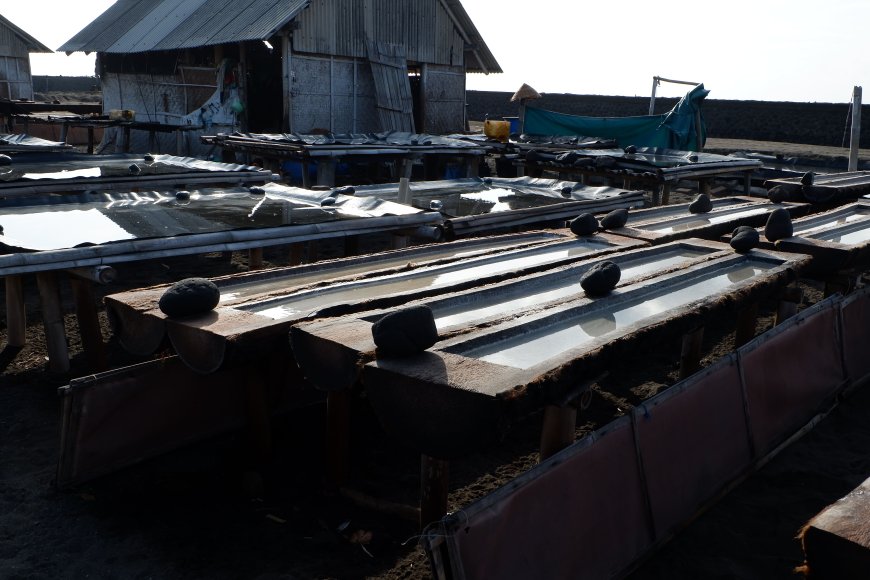
Drying Salt in Palungan (Photo Source: Personal Collection)
After the salt crystals are perfectly formed, they are carefully harvested. The dried salt is collected gently to avoid damaging the crystal grains. The harvested salt is then packaged and ready for distribution.
The finished Kusamba salt is usually sold directly at the production site or through local cooperatives. At the cooperatives, Kusamba salt is often enhanced with sodium to meet certain standards, although this additional process does not diminish its uniqueness or distinctive taste. Salt sold at the production site remains a favorite for many who want to experience the authentic product without additives. Besides being a local commodity, Kusamba salt has become an integral part of the identity of Kusamba Village's community.
Kusamba salt has not only been a local commodity but has also successfully penetrated international markets. Known as "Kusamba Natural Salt" or "Kusamba Palung Salt," this product has gained global attention due to its traditional and environmentally friendly production methods. It has become a top choice for customers seeking natural, high-quality salt.
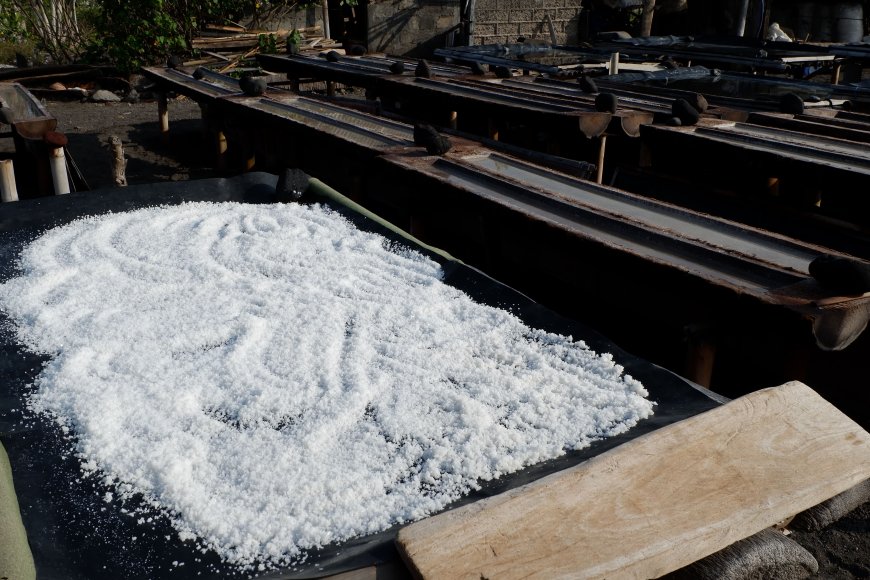
Kusamba Salt (Photo Source: Personal Collection)
The traditional uniqueness of Kusamba salt-making is a distinct attraction. The people of Kusamba Village do not merely produce salt but also maintain a harmonious relationship with nature. Each step is carried out with great respect for the surrounding environment, making Kusamba salt a symbol of sustainable living.
Beyond its economic benefits, the tradition of making Kusamba salt also holds significant cultural value. Through this tradition, the local community can preserve their identity amidst the tide of modernization. Kusamba salt is not merely a product but a cultural heritage that connects the past, present, and future.
Through its popularity, Kusamba salt has brought Bali's name to the world stage. This product is proof that cultural heritage can become a highly valuable commodity. By maintaining tradition, Kusamba salt continues to be a source of pride for the local community and a cultural icon of Bali in the eyes of the world.




